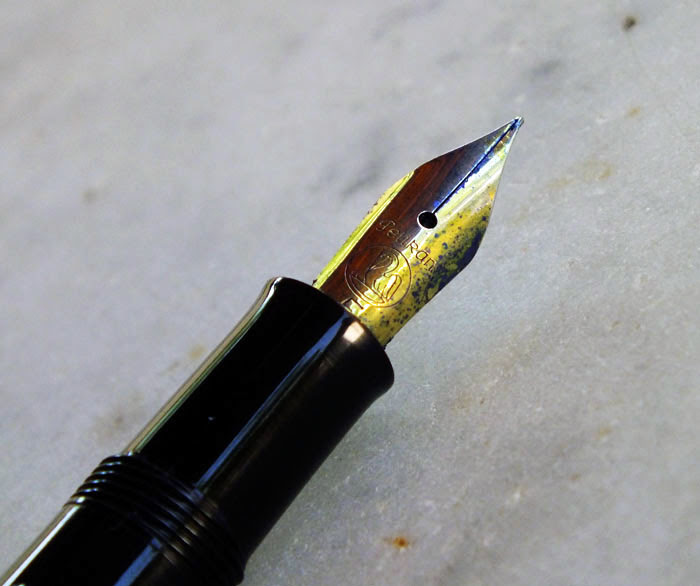
The International Court of Justice, which has its seat in The Hague,
is the principal judicial organ of the United Nations
INTERNATIONAL COURT OF JUSTICE
APPLICATION OF THE CONVENTION AND PUNISHMENT OF THE
CRIME OF GENOCIDE IN THE GAZA STRIP (SOUTH AFRICA VS ISRAEL)
24 MAY 2024
INTERNATIONAL COURT OF JUSTICE
Peace Palace, Carnegieplein 2, 2517 KJ The Hague, Netherlands
Tel.: +31 (0)70 302 2323 Fax: +31 (0)70 364 9928
Press Release Unofficial
No. 2024/47
24 May 2024
Application of the Convention on the Prevention and Punishment of the Crime of Genocide in
the Gaza Strip (South Africa v. Israel)
Request for the modification of the Order of 28 March 2024
The Court reaffirms its previous provisional measures and indicates new measures
THE HAGUE, 24 May 2024. The International Court of Justice today delivered its Order on
the request for the modification and the indication of provisional measures submitted by South Africa
on 10 May 2024 in the case concerning Application of the Convention on the Prevention and
Punishment of the Crime of Genocide in the Gaza Strip (South Africa v. Israel).
In its Order, the Court:
“(1) By thirteen votes to two
Reaffirms the provisional measures indicated in its Orders of 26 January 2024
and 28 March 2024, which should be immediately and effectively implemented;
IN FAVOUR: President Salam; Judges Abraham, Yusuf, Xue, Bhandari, Iwasawa,
Nolte, Charlesworth, Brant, Gómez Robledo, Cleveland, Aurescu, Tladi;
AGAINST: Vice-President Sebutinde; Judge ad hoc Barak;
(2) Indicates the following provisional measures:
The State of Israel shall, in conformity with its obligations under the Convention on the Prevention and Punishment of the Crime of Genocide, and in view of the
worsening conditions of life faced by civilians in the Rafah Governorate:
(a) By thirteen votes to two
Immediately halt its military offensive, and any other action in the Rafah
Governorate, which may inflict on the Palestinian group in Gaza conditions of life that
could bring about its physical destruction in whole or in part;
IN FAVOUR: President Salam; Judges Abraham, Yusuf, Xue, Bhandari, Iwasawa,
Nolte, Charlesworth, Brant, Gómez Robledo, Cleveland, Aurescu, Tladi;
PAGE 2
– 2 –
AGAINST: Vice-President Sebutinde; Judge ad hoc Barak;
(b) By thirteen votes to two,
Maintain open the Rafah crossing for unhindered provision at scale of urgently needed basic services and humanitarian assistance;
IN FAVOUR: President Salam; Judges Abraham, Yusuf, Xue, Bhandari, Iwasawa,
Nolte, Charlesworth, Brant, Gómez Robledo, Cleveland, Aurescu, Tladi;
AGAINST: Vice-President Sebutinde; Judge ad hoc Barak;
(c) By thirteen votes to two,
Take effective measures to ensure the unimpeded access to the Gaza Strip of any
commission of inquiry, fact-finding mission or other investigative body mandated by
competent organs of the United Nations to investigate allegations of genocide;
IN FAVOUR: President Salam; Judges Abraham, Yusuf, Xue, Bhandari, Iwasawa
Nolte, Charlesworth, Brant, Gómez Robledo, Cleveland, Aurescu, Tladi;
AGAINST: Vice-President Sebutinde; Judge ad hoc Barak;
(3) By thirteen votes to two,
Decides that the State of Israel shall submit a report to the Court on all measures
taken to give effect to this Order, within one month as from the date of this Order.
IN FAVOUR: President Salam; Judges Abraham, Yusuf, Xue, Bhandari, Iwasawa,
Nolte, Charlesworth, Brant, Gómez Robledo, Cleveland, Aurescu, Tladi;
AGAINST: Vice-President Sebutinde; Judge ad hoc Barak.”
Vice-President SEBUTINDE appends a dissenting opinion to the Order of the Court;
Judges NOLTE, AURESCU and TLADI append declarations to the Order of the Court;
Judge ad hoc BARAK appends a dissenting opinion to the Order of the Court.
In its Order, the Court emphasizes that the catastrophic humanitarian situation in the Gaza
Strip which, as stated in its Order of 26 January 2024, was at serious risk of deteriorating, has
deteriorated, and has done so even further since the Court adopted its Order of 28 March 2024. It
notes that,
“[a]fter weeks of intensification of military bombardments of Rafah, where more than
a million Palestinians had fled as a result of Israeli evacuation orders covering more
than three quarters of Gaza’s entire territory, on 6 May 2024, nearly
100,000 Palestinians were ordered by Israel to evacuate the eastern portion of Rafah and
relocate to the Al-Mawasi and Khan Younis areas ahead of a planned military offensive
PAGE 3
3 –
The military ground offensive in Rafah, which Israel started on 7 May 2024, is still
ongoing and has led to new evacuation orders. As a result, according to United Nations
reports, nearly 800,000 people have been displaced from Rafah as at 18 May 2024.”
The Court considers that these developments are exceptionally grave and constitute “a change in the
situation within the meaning of Article 76 of the Rules of Court”. The Court is also of the view that
the provisional measures indicated in its Order of 28 March 2024, as well as those reaffirmed therein,
do not fully address the consequences arising from the change in the situation, thus justifying the
modification of these measures
The Court further considers that, on the basis of the information before it, the immense risks
associated with a military offensive in Rafah have started to materialize and will intensify even
further if the operation continues. In addition, the Court is
“not convinced that the evacuation efforts and related measures that Israel affirms to
have undertaken to enhance the security of civilians in the Gaza Strip, and in particular
those recently displaced from the Rafah Governorate, are sufficient to alleviate the
immense risk to which the Palestinian population is exposed as a result of the military
offensive in Rafah”.
A summary of the Order appears in the document entitled “Summary 2024/6”, to which
summaries of the opinions and declarations are annexed. This summary and the full text of the Order
are available on the case page on the Court’s website.
Earlier press releases relating to this case are also available on the Court’s website.
Note: The Court’s press releases are prepared by its Registry for information purposes only
and do not constitute official documents.
The International Court of Justice (ICJ) is the principal judicial organ of the United Nations.
It was established by the United Nations Charter in June 1945 and began its activities in April 1946.
The Court is composed of 15 judges elected for a nine-year term by the General Assembly and the
Security Council of the United Nations. The seat of the Court is at the Peace Palace in The Hague
(Netherlands). The Court has a twofold role: first, to settle, in accordance with international law,
legal disputes submitted to it by States; and, second, to give advisory opinions on legal questions
referred to it by duly authorized United Nations organs and agencies of the system.
PAGE 4
– 4 –
Information Department:
Ms Monique Legerman, First Secretary of the Court, Head of Department: +31 (0)70 302 2336
Ms Joanne Moore, Information Officer: +31 (0)70 302 2337
Mr Avo Sevag Garabet, Associate Information Officer: +31 (0)70 302 2394
Email: info@icj-cij.org



